You’d be surprised. Martin Luther King, Jr. is the world’s best-known American, followed by — are you ready? — Elvis Presley, Marilyn Monroe, Walt Disney, and Ben Franklin. Those are the top five. How do I know this? And on what basis? I checked Pantheon 1.0 at the MIT Media Lab, which did the elaborate math so I didn’t have to. Pantheon is “a manually verified dataset of globally famous biographies” that maps historical cultural production and corrects for linguistic and statistical biases.
Here are the U.S. rankings for the top 100 best-known Americans. There’s Abe Lincoln at #9. And right behind him? Jimi Hendricks, if you can believe it, rounding out the top 10. You don’t get to Franklin Delano Roosevelt until #21. But, oh, there’s Andy Warhol, Bruce Lee, and Bob Dylan ahead of FDR, at #11, #12, and #13 — and ahead of John F. Kennedy, too.
One of the beauties of the Pantheon dataset is that you can slice it in so many ways. An obvious way is to compare the cultures and achievements of different nations as represented by their most illustrious figures. So, for example, have a look at the British rankings. Here are the world’s best-known Brits:
How about Germany? Here’s the complete ranking of the most famous Germans. I’m not surprised that Albert Einstein tops the list at #1 (though he’s only the world’s second most-famous physicist, behind Isaac Newton), followed by Johanne Sebastian Bach (#2) (though Mozart is the world’s most famous composer), Ludwig van Beethoven (#3), Martin Luther (#4), and Karl Marx (#5).
And France? Not too shabby either: Napoleon Bonaparte is the most famous Frenchman (though only the world’s fifth most famous politician). Next comes Jeanne d’Arc (#2), Rene Descartes (#3), Voltaire (#4), and Blaise Pascal (#5).
Another obvious way to slice the data is by profession or calling. Who are the world’s most illustrious American composers? If you wear a hat, hold onto it. Here they are, the top 19, beginning with George Gershwin, Leonard Bernstein, John Cage, Philip Glass, and, yes, Henry Mancini. You read that right.
How about the most famous American writers? Now hold onto your socks. The top 141 begins with Edgar Allan Poe, Mark Twain, Ernest Hemingway, Stephen King, and Jack London in that order. Hmmm, there’s Jack Kerouac at #14, right behind Ralph Waldo Emerson and ahead of Henry James. And there’s Henry Miller right behind James. What a weird parade. No sign of that literary mainstay Robert Frost until way back (at #53). But there’s T.S. Eliot (#12), Emily Dickinson (#27), Allen Ginsberg (#29) and F. Scott Fitzgerald (#30). So what happened to that perennial Nobel hopeful Philip Roth? Well, he’s #37, a few places ahead of Nobel laureate Toni Morrison. As for another Nobel laureate, Saul Bellow, he doesn’t even make the list.* But Susan Sontag does, and so do Sidney Sheldon, Mario Puzo, Tom Clancy, and Pearl Buck.
*Ah, I stand corrected. I’ve been reminded that Chicago’s Saul Bellow was born in Canada. So if Bellow were regarded as an American writer (which of course he was), he would be ranked #28 right behind Emily Dickinson (according to the Historical Popularity Index). Turns out that among Canadian writers, he’s #2 — a long distance behind Leonard Cohen, whose fame is considerably greater, according to the HPI. If Cohen were ranked among American writers, he would displace William Faulkner at #7. But I’d bet his recognition, by an overwhelming margin, comes from his identity as a singer-songwriter and not from his reputation as a novelist and poet.
The ranking of best known British writers begins, as you’d expect, with Shakespeare, followed by the less expected: Daniel DeFoe, William Blake, Arthur Conan Doyle, and Lord Byron. There’s Jane Austen at #7, right behind Agatha Christie and ahead of Charles Dickens. Wordsworth and Keats barely crack the top 20, behind them all.
Looking for the world’s best-known Russian writers? Go here. French writers? Go here. Chinese writers? Go here. How about the world’s best known writers regardless of origin? Go here.
How about the most famous activists. You might be astonished. Che Guevera tops the list and Lady Godiva cracks the top 10. The Pantheon 1.0 data base is nothing if not surprising. If you feel like taking a look at the world’s most famous people regardless of where they come from or what they do, go here. Aristotle and Plato rank ahead of Jesus Christ, while John Lennon doesn’t make that list at all. Neither do any of the other Beatles.
To be clear:
The Pantheon 1.0 data measures the global popularity of historical characters using two measures. The simpler of the two measures … is the number of different Wikipedia language editions that have an article about a historical character. The most sophisticated measure [is] the Historical Popularity Index [which adds] information on the age of the historical character (as a proxy for breaking the barrier of time) [and takes into account] the concentration of PageViews among different languages (to discount characters with PageViews mostly in a few languages). [It makes further adjustments] to discount characters that have short periods of popularity and [corrects for] the number of non-english Wikipedia pageviews (to reduce any English bias even further).
Go play with the database yourself. You can find the best known artists, comics artists, dancers, architects, designers, lawyers, actors, singers, musicians, athletes, film directors, diplomats, explorers … and on and on. It’s an amazing set of listings created by this team, which requests this citation: Yu, A. Z., et al. (2016). Pantheon 1.0, a manually verified dataset of globally famous biographies. Scientific Data 2:150075. doi: 10.1038/sdata.2015.75. Nor should I forget to credit my tireless staff of thousands, which alerted me to Pantheon in the first place.
I’ve refrained from commenting on the comparative achievements and reputations of the nations mentioned. I think the names and numbers speak for themselves. You can easily draw your own conclusions. But, as one staffer here remarked, “A big lesson is that fame, broadly considered, only has a loose correlation with achievement.”
May 18 — Crossposted at IT: International Times, The Newspaper of Resistance.

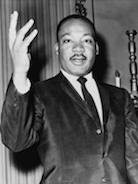


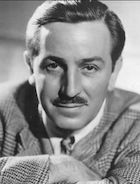
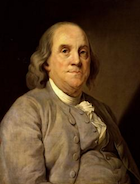

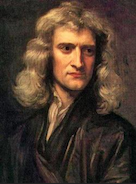
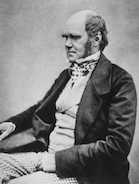
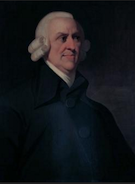
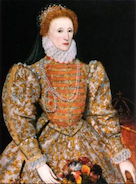
The list shows how much less significant fame is than significance. Philip Glass is thus among the top 5 American composers while Ives is not even included. It’s a reminder that our media, and especially the Net, can make us stupid.
One of the most difficult problems with these sorts of lists is that by almost any measure Hitler ranks as one of the most famous people in history, and is certainly one of the most often mentioned. One could argue that he is by far the most famous German. The problem is that we try to forget the monstrous side of humanity and pretend it doesn’t exist. As with the case of Germany, we do not want to let evil mask what is good about humanity. Nor do we want to credit evil with having influence. Perhaps it really is best that we accentuate the positive. But what happens when we distort history?
Time Magazine has a list of the 100 “most influential” people in history that is hilarious at times. Hitler is 7th which sadly might be about right. But G.W. Bush is listed 36th, ahead of FDR, Thomas Edison, Winston Churchill, Bach, Galileo, Buddha, and Socrates. By this standard, Alfred E. Newman should be number 2, just behind Jesus.
Oh, and by the way, the inadvertently hilarious Time list was put together by Steven Skiena and Charles B. Ward, the authors of “Who’s Bigger? Where Historical Figures Really Rank,” Cambridge University Press, 2013.
Nice to see that MIT and Cambridge exhibit such intelligence………………
You’re right about Hitler. The Kraut list mentions all these fine Nazis — Himmler, Goebbels, Goring, Speer, Mengele, even Eva Braun — but no Hitler. What??? I hadn’t noticed.
Perhaps Hitler is listed among the Austrians?
Yes. Why didn’t I think of that? Hitler was born in Austria, and the database notes nationality by country of birth. (Which is why Einstein, for instance, is listed as German despite his significant association with Switzerland and the U.S.) I can’t check Austrian listings at the moment, but I can check globally known politicians regardless of origin, and “Adolph Hitler” is right there at #2, outranked only by Julius Caesar. Is Caesar more infamous than Hitler? Hard to believe. But apparently he is better known.
PS: And now that I’ve been able to check, yes, Hitler is listed as the world’s best-known Austrian, followed by Mozart (#2) and Marie Antoinette (#3). Here’s that data:
http://pantheon.media.mit.edu/rankings/people/AT/all/-4000/2010/H15
So much is made of Hitler being Austrian, perhaps because Germany doesn’t want to claim the man they elected as their Chancellor. It would be like someone becoming President of the USA without being a citizen. Regardless of where he was born, Hitler became a naturalized German, and is unquestionably the most famous German even if they don’t want to claim him.
Beyond that, until 1866, Hitler’s birthplace of Braunau-am-Inn was a town in Germany, part of the German Confederation set up in 1815 to replace the old Holy Roman Empire (the odd name the German Confederation called itself.)
In 1866, Prussia and Austria went to war to determine who would rule the Confederation. Prussia won then dissolved the Confederation and forced most of the smaller states which had been members to join a new, smaller but more centralized German Empire.
Hitler’s birthplace, Braunau, was outside the new borders of the German Empire, even though it had been part of the larger German Confederation. Many felt that the whole German nation should be reunited once more. Hitler realized that goal and thus became a German even on the basis of the place he was born, and not just through naturalization.
Nevertheless, this is a disputed view. After all, who wants to claim Hitler.
BTW, if there is any region that has to claim Hitler, it should be Bavaria. That is where he built his party. It is the region that gave him his political power and created the basis for his leap to the Chancellorship of Germany.
all the details much appreciated.
Getting away from the Hitler theme, here is a clear (and fairly concise) statement by the creators of Pantheon 1.0 about the meaning and the goal of their investigations. The title of the article: “Is Fame Fair?”
http://blogs.nature.com/scientificdata/2016/01/05/authors-corner-is-fame-fair/
They write that one way to think about fame is that it is “an aggregation of individual choices. This would mean that individuals, on average, avoid liking those who do not truly deserve attention, since these go against the evolutionary biases that nudge our choices on whom to learn from. Another alternative is to think that fame rooted in accomplishments is more sustainable over long periods of time than fame rooted in simple rich-get-richer processes. An explanation for this would be that individuals who have produced true accomplishments are more frequently recalled as benchmarks to evaluate the accomplishments of similar individuals.” They admit their research paper “cannot distinguish between these two alternatives …” Their goal in “studying the dynamics of human attention and popularity” is ultimately “to provide quantitative and reproducible measures of global attention . . . to improve our scientific understanding of questions about our collective memory and about how humans select what information to listen to and record.”
Bellow was born in Canada.
Thanks for the correction. Blogpost text adjusted. Bellow would rank right behind Emily Dickinson if he were regarded as an American writer, which of course he was.